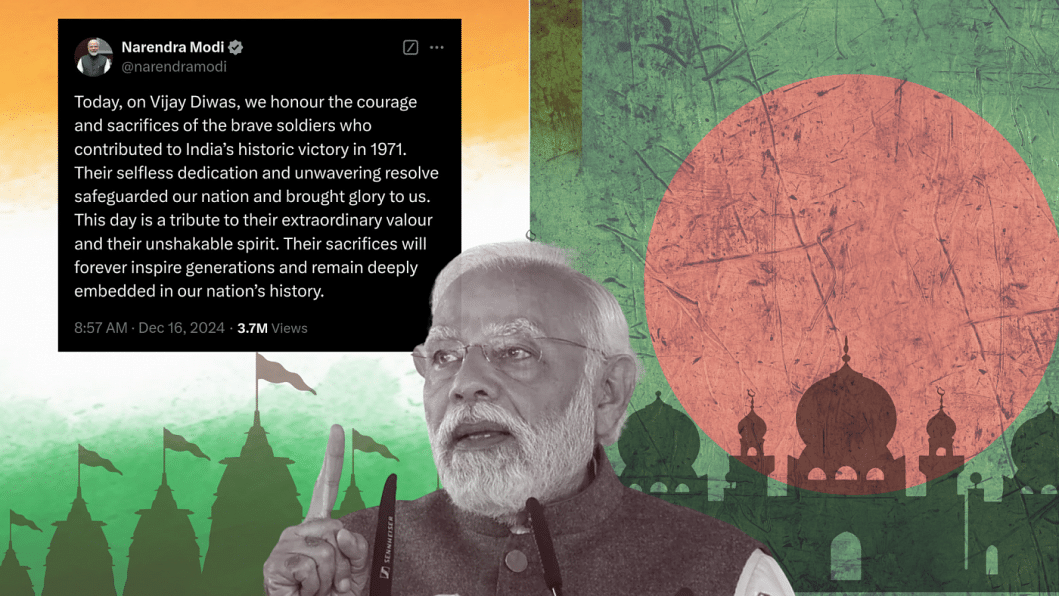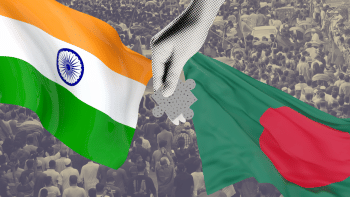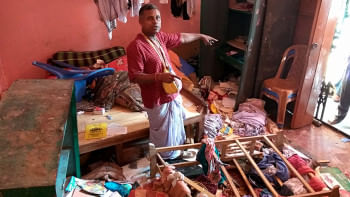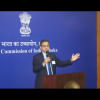Communal narrative is a no-go zone!

A recent tweet from Indian Prime Minister Narendra Modi has ignited controversy in Dhaka regarding the historical context of the 1971 war, which resulted in the liberation of Bangladesh. While Modi's rightful praise for the Indian soldiers involved in the war is noteworthy, it raises questions about the broader historical narrative and attempts to rewrite history. The war, which began on March 26, 1971, with the participation of mass Bangladeshis, culminated in Bangladesh's independence on December 16, 1971. Dhaka sees this carefully crafted tweet as another foreign policy misstep that could further increase anti-India sentiment.
It is essential to acknowledge that the narratives from New Delhi too often fail to recognise the contributions of over 1,500 individuals who sacrificed their lives for freedom—among thousands of others—during a challenging 15-year period marked by the Awami League's transactional collaborations with the BJP. The use of communal narratives in Mr Modi's tweets on Bangladesh is most certainly causing phenomenal reactions. At the same time, the track record of minority persecution under the BJP, as reported by the US State Department's reports on religious freedom, is not a forgotten phenomenon. AL remained silent on the minority persecution in India while India saw a phenomenal decline in Muslim participation in Indian politics.
Hence, communal narratives perpetuated by the political cheerleaders or propaganda machines in Delhi will only cement the anti-India sentiment, in which the far-rightists and the extremists will gain momentum in the future. These groups, like the Hindutva extremists or the ethnonationalist extremists in Myanmar, will comfortably hold enough control over the perception by displaying vivid examples of minority persecution, notably the Muslims and the communities in the Indian Northeast. It is still a surprise that communal narratives, which the international community has already debunked remain a core tool for Delhi's propaganda machines.
While AL's ousting by the mass uprising was an apparent shock for the Indian political agencies, anti-Bangladesh narratives further question the foreign policy acumen of the BJP. If the BJP and its security tools are consciously creating ground for extremist bloopsto justify AL's return to Dhaka, this will be another classic blunder that Delhi will have to bear for a long time to come. On a positive note, Dhaka has consistently shown positive gestures to continue equal-handed and win-win relations with Delhi since August 8, 2024, recognising the importance of this crucial bilateral tie. I guess that idea of equal relationships is hurting political machoism.
Like Bangladesh's Western partners and trade confidant China, Delhi should note that the interim government is new, the political situation is still fluid, and the government requires a reasonable time to fix the nuts and bolts of democracy. Here, the buzzword is "democracy," which has always been the least priority for BJP and AL ties. The interim government came to power at a time when the democratic institutions, judiciary and law enforcement agencies, and electoral systems essentially became one-party enterprises.
On top of that, Bangladesh had practically no functional law enforcement agencies between August 5 and 8, and some attacks against AL affiliates continued in between. These attacks included AL politicians and beneficiaries, be they Muslims or Hindus. At the same time, the economy that the interim government inherited continues to be challenging, requiring sustained international support. One would have expected Delhi's forthcoming role in Bangladesh's economic reconstruction and institutional reforms, but the train has left the platform.
Instead, media narratives (one would say it is media terrorism), recent attacks on Bangladesh consulates, and the desecration of the Bangladesh flag continue openly. The Bangladesh foreign secretary had to take a bold stance to remind his counterpart that religion and its practice are Bangladesh's internal affairs, and other countries are not expected to comment on our internal matters.
That means the Indian communal narrative and misleading history projects deeply affect its neighbourhood and foreign policy. These narratives come as South Asia undergoes massive transformation, which puts the BJP in a position where it must justify its actions to its political allies and adversaries in Delhi. The party's Herculean position of having an absolute majority in parliament is being challenged. It faces a decline in regional partnerships, exemplified by the closure of its embassy in Kabul or the animated ties with the failing Buddhist military in Myanmar accused of genocide.
Indeed, Sri Lankan and Maldivian tilts toward China and the West, or Nepal's rewriting of the map, can't go unnoticed. BJP's heightened dependence on the Chinese economy perhaps gives an informed anecdote of foreign policy frailties. The other major political party, the Congress, has demonstrated relatively better political maturity despite its struggles to balance a need for stable Dhaka and familial ties between the Gandhi family and former Prime Minister Sheikh Hasina.
The West Bengal Chief Minister Mamata Banerjee's misleading appeal for stationing peacekeepers underscores Kolkata's mounting desperation. After the Indian High Commission in Dhaka closed visas for general Bangladeshis, the state experienced alarming economic declines, and its prosperity was heavily intertwined with its economic relations with Bangladesh.
Moreover, after President-elect Donald Trump's tweet on attacks on Hindus in Bangladesh, there is wide speculation that Mr Modi's cabinet will go the extra mile to put pressure on Dhaka using channels with the White House. Just a heads-up, Dhaka would perceive that the tie between the Trump and Modi administrations could prioritise communal issues and security concerns and routinely position Dhaka's tie with Beijing as a significant threat.
Despite ongoing pessimism, there is hope for improved bilateral relations if Delhi adjusts its foreign policy in the coming months. Delhi needs to acknowledge that adopting a more inclusive foreign policy aligns with mutually acceptable interests. Assisting the interim government in stabilising the economy and reinforcing political institutions can facilitate a quicker return to a democratic framework. An emerging national unity regarding legal actions to reform AL and transform it into a reformed political entity distanced from its past leadership is a reality. Hence, advocating for free and fair elections and remaining open to any changes the Bangladeshis choose to bring in are also key to India's interest. Indeed, refraining from exaggerated communal rhetoric would serve as its best deterrence against perceived extremist threats.
Shahab Enam Khan is professor of international relations at Jahangirnagar University.
Views expressed in this article are the author's own.
We welcome your contributions and analysis of global events, and responses to our articles. To submit articles to Geopolitical Insights, please send an email to [email protected].
Follow The Daily Star Opinion on Facebook for the latest opinions, commentaries and analyses by experts and professionals. To contribute your article or letter to The Daily Star Opinion, see our guidelines for submission.


 For all latest news, follow The Daily Star's Google News channel.
For all latest news, follow The Daily Star's Google News channel. 








Comments